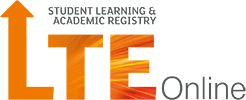Prioritising flexible assessment arrangements in a hybrid model means shifting our focus beyond determining viable ‘alternative’ assessment arrangements in the short-term, on to more sustainable approaches and designs that are sensitive to the needs and circumstances of students, giving them more control and ownership over assessment processes.
‘Flexibility’ in assessment is about responding to students’ individual learning needs as well as needs of the curriculum. The key is making assessment relevant to the learner. The most effective strategies for achieving such flexible assessment will utilise a variety of accessible and inclusive approaches, employing a carefully designed and balanced range of authentic assessment tasks and formative assessment processes that enable all students to demonstrate what they know, understand and can do.
Example 1: Designing online examinations
In this short webinar Dr Adam Adgar (Head of Department for Engineering) outlines the steps taken by the Engineering department to transition a large portfolio of traditional examinations online. Dr Adgar provides an overview of the practical actions taken, alongside key challenges and considerations for converting to an online examination format. The webinar also usefully captures some of the key learning gained and how the department plans to improve the online examination experience for students next year.
Formative assessment and formative feedback are also integral to learning-focused assessment design. Effective feedback is more important than ever in instances where there is need to accommodate flexible study patterns and maintain productive student engagement in blended learning environments. Folding in regular formative feedback is a good way of checking for individual understanding; giving students an indication of where they are in relation to achieving learning outcomes or standards, where they need to progress to, and how they will be able to reach the expected level.
Example 2: Building in effective formative assessment processes
In this short webinar, Dr Samantha Gooneratne (Principal Lecturer, Engineering) discusses the utilisation of Class Notebooks in Microsoft OneNote as a means of actively involving students with formative assessment and feedback. Dr. Gooneratne provides an overview of the design process and principles, as well as key practical considerations for making effective use of class notebooks as part of an integrated formative assessment process whether implemented in class or online.
Being open to new ways of working with available digital learning technology and tools is vital for achieving sustainable assessment approaches and designs that respond to the learning needs of students as well as meeting our curricula aims. Taking small and incremental steps in expanding our utilisation of different technologies and tools aligned with assessment and feedback can revitalise assessment for learning and feedback to make it more flexible and effective at a time when assessment processes need to provide an accessible, equitable and relevant learning experience for all our students.
It is important that we continue to capture examples of and model for effective flexible assessment arrangements as we head into the new academic year framed by a model of hybrid learning. To share your own flexible assessment practice(s), please contact elearning@tees.ac.uk or s.elkington@tees.ac.uk
See these related LTE online resources for further information and guidance on this topic
- LTE Online Guide, Considerations and Resources for Supporting Alternative Assessment Methods.
- LTE Bites, No.5 Designing Formative Assessment.
- LTE Bites, No.6 Strategies for Embedding Flexible Assessment.
- LTE Bites, No.7 Designing Take Home Examinations.
